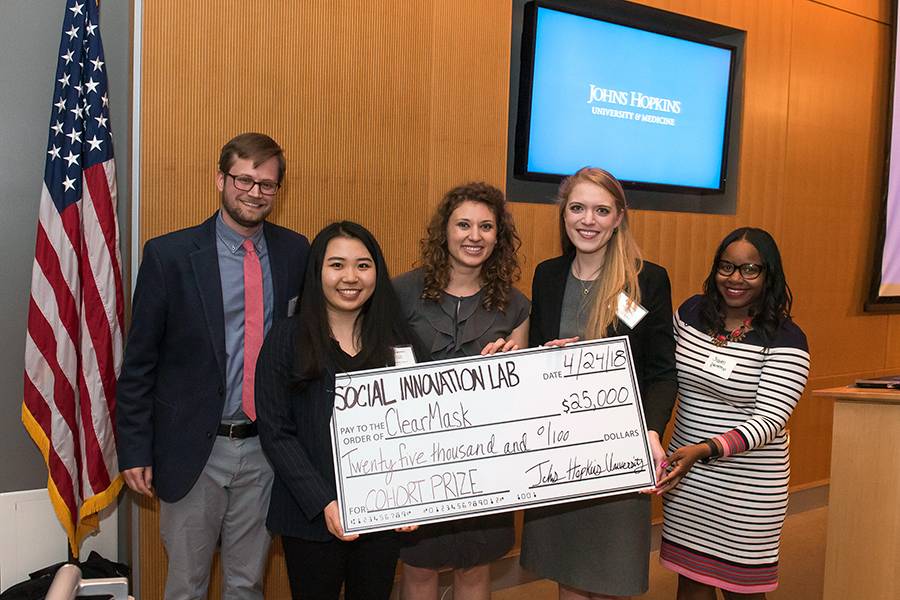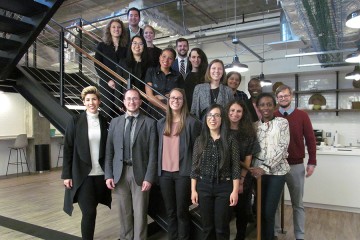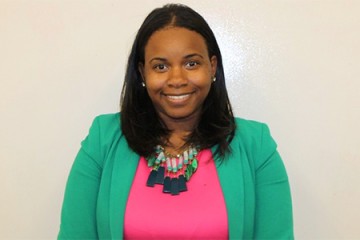Somewhere between the waiting room and the fog of anesthesia, Allysa Dittmar lost all ability to communicate.
On the day she was scheduled for a surgery a few years ago, Dittmar, who is deaf, found herself lacking a sign-language interpreter. She got by reading lips and facial expressions—until the moment her doctors and nurses put on their surgical masks.
From that point on, Dittmar was effectively isolated, unable to understand or respond to any basic questions.
"Eventually the staff gave up on me," she said Wednesday night. "I didn't feel human."
While she processed that experience, though, an idea was born: The ClearMask. It's a transparent surgical mask, which does its job blocking germs and fluids—without blocking faces.
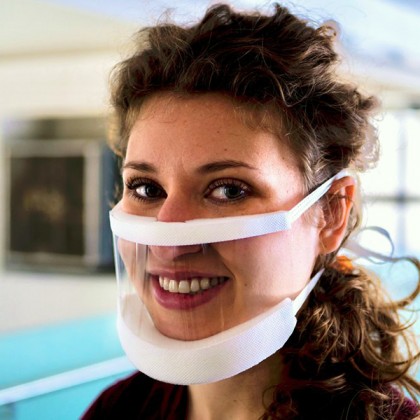
Image caption: The ClearMask prototype is designed to prevent fogging and enable better communication
Image credit: Courtesy of ClearMask
Dittmar and her team from Johns Hopkins, along with an alum from Gallaudet University, see the product holding value beyond the deaf and hard-of hearing population: they envision ClearMask helping patients with limited English skills, for example, and anxious children as well.
Over the past six months, the team has worked to refine their product through the Johns Hopkins Social Innovation Lab, a startup accelerator program. On Wednesday night, the program participants (full list below) selected ClearMask to win the program's top funding prize of $25,000.
The same evening, ClearMask also scored another win in Washington D.C.: $15,000 from the VillageCapital pitch competition at Gallaudet University, according to Dittmar.
They hope to submit their final design for FDA approval in August and put their product through clinical trials early next year.
The team has engineered their product to be fog-resistant, breathable, and more comfortable, they say, than the standard surgical mask.
Also see
Though the mask could be especially valuable for patients with communication barriers, the team emphasizes the importance of full-face visibility for any type of patient. They cite statistics: 55 percent of all human communication is based on non-verbal cues, including facial expressions and eye contact; meanwhile, miscommunication plays a factor in 80 percent of all medical errors, the team says.
Along with Dittmar, who earned her master's from the Johns Hopkins School of Public Health last year, the ClearMask team includes Aaron Hsu, Elyse Heob, and Inez Lam—all current or former graduate students at Hopkins.
ClearMask was one of 10 Baltimore startups that participated in this year's Social Innovation Lab, each receiving mentorship, work space, and initial seed funding. This year's program—part of Johns Hopkins Tech Ventures—saw its "most competitive application round to date," said director Alex Riehm. It was also a particularly diverse cohort, with 90 percent of the final cohort led by women or people of color.
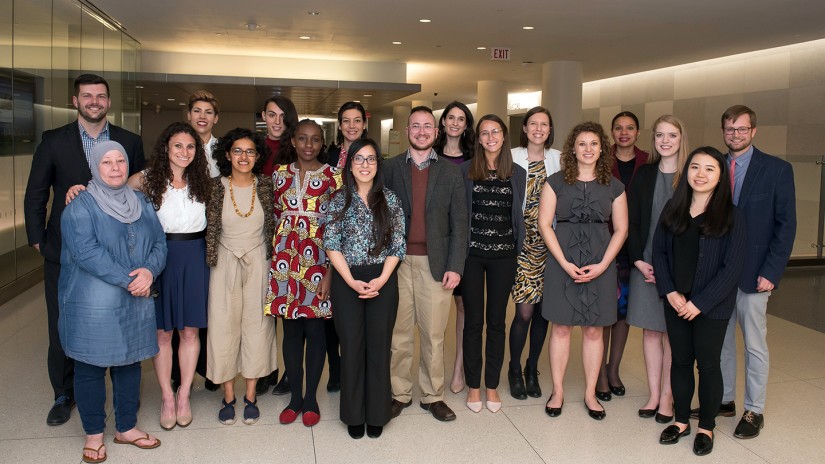
Image caption: 10 Baltimore startups that participated in this year's Social Innovation Lab
Image credit: Larry Canner / Homewood Photography
In addition to ClearMask, the lab this year included the following startups:




